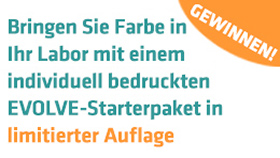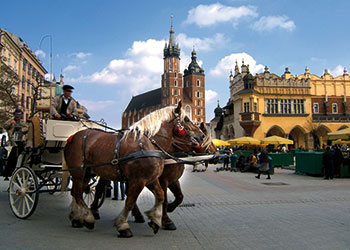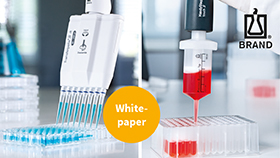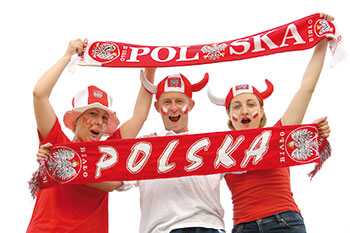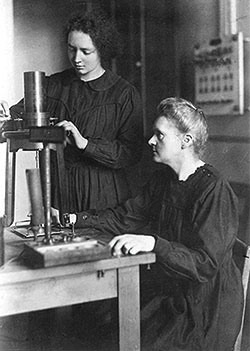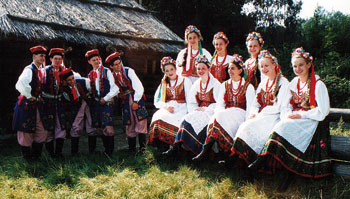Welcome to Poland
Witamy Polska
Career strategies for young European scientists
by Ralf Schreck, Labtimes 02/2011
Old structures and bureaucracy have long hindered the flowering of science and research in Poland. However, radical reforms have recently been introduced and so this little plant will soon grow into a big tree.
Education and science have a long tradition in Poland. Kraków Academy, today’s Jagiellonian University, is one of the oldest universities worldwide. The list of prominent Poles is spearheaded by the polymath Nicolaus Copernicus and the Nobel laureate Maria Skłodowska-Curie, who dubbed chemical element 84 Polonium after her home country. Many excellent scientists have given Poland the cold shoulder in the past and sought greener pastures abroad. A radical reform of the whole research and education system should now make Poland more competitive and attractive for Polish expatriates and foreign scientists. Here, Lab Times tells you whether now is the right time to head to Poland.
Background
With 39 million citizens, the Republic of Poland is the sixth largest European country. It is a parliamentary democracy with 16 voivodeships (provinces), which are further subdivided into counties and communes. Cities with more than half a million citizens are Poland’s capital Warsaw, Kraków, Lodz, Wrocław and Poznań. The Kingdom of Poland was established in 1025. Close ties with Lithuania culminated in the formation of the Polish-Lithuanian Commonwealth in 1569, which persisted until Poland was divided between Russia, Prussia and Austria 200 years later. Poland became independent again as 2nd Polish Republic in 1918. During World War II, six million Polish citizens lost their lives and Poland was divided between the Germans and the Soviets. The latter installed a Communist government after the war. The People’s Republic of Poland was proclaimed in 1952 and lasted until 1989. Lech Wałęsa and the independent trade union Solidarność were the major democratic forces behind the first free elections, which marked the start of the 3rd Polish Republic with a Western-style liberal political system and a market-orientated economy. Poland was admitted as full member of the OECD in 1996, of NATO in 1999 and of the EU in 2004. It is expected to abandon its currency Złoty and to adopt the Euro next year.
The aim of the European cohesion policy is to alleviate discrepancies between different EU regions. Between 2007 and 2013 more than €350 billion will be spent from several sources: the Regional Development Fund, the Social Fund and the Cohesion Fund. Poland is receiving a fifth of this amount, which makes it the largest beneficiary in the EU. More than 20 national and regional programmes have been set up to channel the money. The Ministry of Science and Higher Education is in charge of more than €4 billion to fund programmes in Innovative Economy, Human Capital & Infrastructure and Environment. That’s hardly peanuts, if you consider that the regular annual budget for Research and Development is little more than €1 billion. Less successful in Poland is the 7th EU Framework Programme. Initial statistics revealed that the participation, success rate and number of network coordinators are below the EU average. This poor performance also pertains to the Starting and Advanced Grants of the European Research Council, indicating that Poles are still unfamiliar with this peculiar way of securing funds. Given that support from the EU cohesion policy is only temporary, it is likely that the current infrastructure may not be used very efficiently in future due to insufficient national funds.
Performance
After far-reaching reforms, including the partial privatisation of state-owned companies, Poland has become one of the fastest-growing economies in Europe. In 2009, it was the only European country to maintain growth of its GDP in the face of the financial crisis. A survey by Ernst & Young described Poland as one of the most attractive destinations for foreign investments. This is due to its location in central Europe, its large consumer market and economic stability. The number of foreign investment projects is on the rise, main investors being from Germany and France. The service sector particularly benefits, including IT services, electronics and the automotive sector. Aviation and biotechnology have become increasingly appealing. More than 40 research and development centres have been seen set up, for example by IBM, Motorola, Siemens, Lufthansa, Hewlett Packard and GlaxoSmithKline.
Since 2006, Poland has moved up 18 places in the IMD World Competitiveness Yearbook, in which leading economies are grilled on more than 300 criteria relating to economic performance, government & business efficiency and infrastructure. The strong economic growth in Poland, with its still low cost-of-living index and favourable corporate tax rates, was emphasised in the report, whereas poor marks were given for high rates of inflation and bureaucracy, lack of attractiveness for students from abroad, lack of highly skilled employees at enterprises and for marginal high-tech exports. The problem of poor roads will be partially improved in the run-up to EURO 2012, the European Football Championship hosted by Poland and Ukraine. Currently, Poland is one of the leading European producers of rye, potatoes and sugar beet and more than half of its area is used for agriculture. However, agriculture is currently suffering from the small size of farms and their high fragmentation, lack of capital and relatively low productivity. Main industries include machine building, iron and steel, coal mining, chemicals, shipbuilding and textiles.
Polish biotech
According to the OECD Science, Technology and Industry Outlook 2010, the scientific output indicators of Poland are mostly below average. This pertains, for example, to the number of triadic patents (patents filed for the same invention at the European, US and Japan Patent Offices) as well as to the number of publications per million inhabitants. The Science and Engineering Indicators 2010, published by the US National Science Foundation, put Poland at number 8 in Europe and 20 in the world for articles published in all fields of science and engineering. According to the SCImago Journal and Country Rank covering the years 1996 to 2009, Poland is 19th in the overall number of publications worldwide, 24th in citations and 26th for citations per document, if countries with more than 100,000 publications are taken into account. In Eastern Europe, it is 2nd after the Russian Federation in the number of publications, citations and H-index, which measures productivity and impact. Thomson Reuters’s Science Watch reveals that Poland’s relative impact is particularly high in space science and clinical medicine and is comparatively strong in agricultural sciences. In the latest QS World University Rankings no Polish university made it into the top 300 in the overall category. However, two Polish universities were represented in sub-rankings: the Jagiellonian University of Kraków in natural sciences (ranked at 175) and life sciences & medicine (196) as well as Warsaw University in natural sciences (137) and engineering & information technologies (rank 228).
Polish biotechnology is growing slowly but steadily. With more than 50 companies, Poland tops the group of new EU member states. Biotech benefits tremendously from the Governmental Action Plan of 2008 and from EU funds from the Innovative Economy Programme. As a consequence, science and technology parks are springing up like mushrooms. More than 80% of companies have less than 250 employees and the majority are service providers, performing contract research, manufacturing and other services. In the therapeutics sector a few companies are noteworthy: Mabion, focusing on the use of humanised monoclonal antibodies in oncology, Celon Pharma, applying RNA interference to combat various diseases, Celther, developing stem cell therapies for the treatment of Alzheimers and Euroimplant, devoted to innovative tissue engineering applications. Bioton and Adamed, the two leading Polish pharmaceutical companies, also invest significantly in biotech research.
The basics
After the fall of communism, the State Committee for Scientific Research, or KBN, took care of Polish science and technology. Since 2006, the Ministry of Science and Higher Education (MSHE) has been in charge of overall research policy and has the final say on the majority of funds. Two additional major players on the Polish science landscape are the Foundation for Polish Science (FNP), a self-financing organisation dedicated to excellence, competition and transparency in its funding programmes, and the Polish Academy of Sciences (PAN), a learned society and advisory body as well as a research performer, running a whole set of research institutions.
In 2008, total Research and Development (R&D) expenditure in Poland amounted to €1.77 billion. This is less than 0.6% of GDP and low in comparison to other EU countries, which spend on average about 2%. More than two-thirds of all R&D investments are derived from the state, indicating a lack of entrepreneurship. About three quarters of people involved in R&D are employed in the higher education sector. R&D is carried out in so-called units, which may be, for example, a one-man enterprise, a faculty at a university or a research institute with a couple of hundred employees. In 2008, there were more than 1,150 units. Among them were 195 higher education institutions, 271 scientific and research development units including the institutes of the Polish Academy of Sciences, 135 branch research development units and 640 development units. Whereas branch research development units are State institutions supervised by ministries with R&D remits, development units are associated with businesses carrying out R&D.
Research policy and funding
So in what sort of state is Polish education and research? Until now, the majority of public funds have been distributed via institutional, non-competitive instruments, also referred to as statutory funding. Less than 20% of research funds have been distributed in a competitive way. The Ministry of Science and Higher Education, headed by Barbara Kudrycka, has been responsible for research policy and funding but also for the design and implementation of research programmes, the assessment of funding applications and the evaluation of institutions. These evaluations have been highly unsatisfactory, since their outcome often did not result in performance-based funding. R&D in the business sector has been mostly pitiful, characterised by a lack of innovation and little cooperation with public research institutions. The capacity to secure and manage intellectual property rights is still underdeveloped. Traditional hierarchies, very low salaries, lengthy bureaucratic and non-transparent procedures for promotion, researchers’ mobility seen as lack of loyalty and an aged group of highly influential professors, more than a third above the age of 70, have made academic careers very unattractive.
To substantially improve the Polish science and education system and its financing, a whole set of reforms is currently underway. Mid- to long-term strategies have been developed after consultation with the scientific community. Main strategies and programmes are the Strategy for Increasing the Innovativeness of Economy 2007-2013, the National Reform Programme 2008-2011, the Higher Education Development Strategy 2020, and Poland 2030 – Development Challenges. The Ministry of Science and Higher Education is currently out-sourcing several tasks to independent agencies and a new set of advisory and evaluation bodies, including the Young Scientists’ Council and the Committee of Evaluation of Scientific Units have been established. However, the planning of the science budget, the statutory funding of scientific units, the funding of large research infrastructure as well as a set of specific programmes including the Scholarships for Young Outstanding Scientists remain with the Ministry. The main pillars of ongoing reforms are summarised below.
Radical reforms
Research policy in Poland is often implemented via legislation, which has to be adopted by Parliament and approved by the President. The “Building upon Knowledge” reform package was initially presented in September 2008. It took two years to come into effect. Its main goals are to establish a transparent funding system, to reward science that is excellent according to international standards, to concentrate funds on the best and get rid of poor performers, to extend competition for funds and to implement a comprehensive evaluation system. In addition, researchers’ mobility and early-career scientists receive special attention.
A second reform package called “Partnership for Knowledge” addresses the higher education system and is expected to come into force later this year. The autonomy of institutions will be strengthened and their management improved. The best institutions will be selected in open competitions in eight areas including medical science, agriculture, forestry and technology, and receive the status of a National Leading Scientific Centre (KNOW for Krajowe Naukowe Ośrodki Wiodące). Extra funding will be provided for up to three centres per area and initially for five years. A novel academic career model with simplified and transparent rules for recruitment, promotion and the award of academic titles will be introduced. Moreover, a revised loans system is going to increase the accessibility of higher education to students in need. The rights of students will be better protected and the best students will receive additional financial support.
The reforms led to two independent funding agencies, the National Centre for Research and Development in Warsaw and the National Science Centre in Kraków. They will manage more than half of the Polish science budget after full implementation. The National Centre for Research and Development (NCBiR, Narodowe Centrum Badan i Rozwoju) has responsibility for applied research, technology transfer and strategic R&D programmes as well as for defence and security research. The National Centre for Science (NCN, Narodowe Centrum Nauki) is in charge of basic research. At least a fifth of its budget is earmarked for early career scientists below the age of 35. The NCN Council was recently appointed and job openings were announced for a Director and Programme Directors. The first calls for grants are expected for the second half of 2011.
There are too many changes in the Polish system to present here, even the most important ones. The motives for reform are reasonable and the goals highly ambitious. It will take perseverance to deal with the part of the scientific community that fears changes and wants to sustain the old system. It will also require iron commitment from the government to provide additional financial resources as well as continuous support from the scientific community. Hopefully, the Polish elections in 2012 will not lead to an overall majority, which could turn back the clock.
Foundation for Polish science
FNP, the Foundation for Polish Science, was established two decades ago as an independent and self-financing organisation. In many ways, the FNP is serving as a role model for the ongoing reform process. “Supporting the best, so that they can become even better” is its motto. This is also reflected in the low success rate of applications, which is around 10 to 15% or even less. FNP awards competitive and peer-reviewed fellowships, grants and prizes, including the FNP Prize, which is also called the “Polish Nobel”. The Central Fund for Development of Science and Technology provided the initial capital, which has been quadrupled to more than €90 million in the meantime. €7.5 million from FNP’s own assets will be spent in 2011. In addition, €22.5 million will come from EU funds. FNP is managed by an Executive Board headed by Maciej Zylicz and supervised by a council of appointed and elected professors. FNP was evaluated recently by an international group of experts. A report entitled Strengthening the role of FNP in a changing landscape documented that FNP is successful and has a pivotal role in the Polish system by establishing a transparent and competitive funding system based on peer-review (a third of referees come from abroad). Recommendations include to retain FNP’s autonomy, to focus its own on-going programmes and to expand its activities by attracting the management of additional third-party programmes.
According to Programme Division Director Jakub Wojnarowski, the FNP is now in a strategic phase of defining its new role and activities in face of the reforms. Over the next few years, FNP will assist other institutions in implementing the reforms, but also manage new NCBiR or NCN programmes whilst both agencies get going. FNP will also fill any gaps not covered by the two agencies. The scope of on-going FNP programmes will be narrowed and there will be a stronger focus on younger scientists. One planned measure is FIRST TEAM, which targets postdocs between four and six years after receiving their doctorate and enables them to set up their first lab. So it’s definitely worth taking a look from time to time and tracking the progress of FNP as it restructures its own funding programmes.
Currently, FNP offers two major programmes for foreign researchers: Homing Plus and Ideas for Poland. Homing Plus encourages young Polish scholars from abroad to return to Poland but is also open to postdocs from abroad. Requirements are a doctorate up to four years old, a research period abroad of at least nine months and proof of employment by the host institution for the duration of your project. Applicants either have to return to Poland within six months or must have been in Poland for no more than 12 months at the deadline. A research grant of up to €20,000 a year and a stipend of about €1,250 a month for between 12 to 24 months is provided. In addition, research stipends for two master students amounting to €250 per month may be applied for. This year’s first deadline just passed on March 15th but there might be a second call later this year.
“Ideas for Poland” is a new programme from the European Research Council to support the winners of the Starting Grant competition. The applicant has to work at a Polish institution. Provided are a monthly personal grant of €2,580 for up to six years and a one-time research grant of up to €26,000. Applications have to be made after receiving or during the implementation of the ERC Grant. The first awardees are the sociologist Natalia Letki and the computer scientist Mikolaj Bojanczyk from the University of Warsaw. There are many other FNP programmes including bilateral exchange and funding agreements with foreign funding bodies including the German Research Council and Max Planck Society, the Norwegian Scientific Research Council and the National Institutes for Health (USA). Since the FNP’s whole funding repertoire is currently under review, it is advisable to keep an eye on its website.
Polish Academy of Sciences
The Polish Academy of Sciences, Polska Akademia Nauk, or PAN, was established in 1951 and is operating as a state scientific institution. It is both a research institution as well as an advisory body. As a researcher, PAN currently maintains more than 70 research establishments, including 30 research institutes and seven research centres, but also libraries, museums and botanical gardens. The institutions are financed primarily by the State. In 2008, their budget amounted to €250 million and 8,800 staff were employed. As a national advisory body, PAN operates as a learned society with national and foreign members. Members are elected for life into one of several divisions. More than 100 scientific committees are affiliated with these divisions, each primarily concerned with its scientific discipline. In addition, there are national and task force committees, which deal with issues of interdisciplinary or national relevance and are affiliated with the Presidium, headed by Michael Kleiber since 2007.
The new Act on the Polish Academy of Science inflicted many new regulations. For example, the two tasks of PAN as a learned society and as a researcher have to be clearly separated from one another. A chancellor will take care of PAN’s finances, a commission in charge of ethics will be established, the number of divisions needs to be reduced and members over 70 years of age will receive senior status, locking them out of elections for several functions. Research institutes have to be supervised by boards of curators and must be evaluated regularly. The outcome of evaluations decides whether an institute will get funding, receive a shot across the bow and some time for reorganisation or even be liquidated. The institutes also have to introduce measures for the promotion of early career scientists and must compete with each other for funding. The reform package is highly controversial. In particular, the expected reorganisation of some PAN institutes, which will merge with other non-PAN units, is seen as the beginning of the destruction of a system which was highly productive. Nevertheless, if you start looking for a host lab, PAN institutes such as the Nencki Institute of Experimental Biology or the Institute of Biochemistry and Biophysics in Warsaw, are good starting points.
Higher education
In 2008, 131 public and 325 private institutions constituted the higher education system of Poland. There are about two million students, of which half are full-time students and about two-thirds are enrolled at public institutions. Only about 0.5% of students are foreign – twenty times less than the average of OECD countries. A third of the foreign students are from Belarus and Ukraine, other major groups are from Norway, the United States, the Czech Republic and Sweden. There are 22 universities with social and theoretical science faculties, 17 technical universities with a focus on engineering sciences and many specialised units, for example nine medical universities, seven units for agriculture and 18 for fine arts. Full-time studies at public institutions are tuition-free, but institutions may charge registration fees and extra fees for weekend and time-intensive courses. Poland has one of the lowest expenditures per student in the OECD.
Research activities are concentrated within a small group of universities. Eight universities attract more than 50% of all R&D funds in the higher education sector. In the 2010 SCImago Institutions Ranking, research at the institutes of the Polish Academy of Sciences as a whole was ranked high. In addition, in the health sciences category the three top Polish universities were Wrocław Medical University, Jagiellonian University and Poznań University of Medical Sciences, whereas the leading higher education institutions in life sciences were the Jagiellonian University, Wrocław Medical University and the Medical University of Łódź. Academic careers follow the pathway of doctorate (doktor), habilitation (doktor habilitowany) and professorship (profesor). The latter is conferred by the President of Poland after recommendations from the Central Commission for Academic Degrees and Titles.
Funding potpourri
Early in 2010, the Ernst & Young Better Government Programme presented a report entitled Scientific productivity of public higher education institutions in Poland: a comparative bibliometric analysis. Poland’s higher education system was compared to those of the UK, Germany, Austria, Finland, Italy and Switzerland. The relatively low productivity of Poland’s higher education system was attributed to financing shortfalls, a high teaching load and low salaries. A typical professor at a Polish university was shown to receive a gross salary, without bonuses and salary add-ons from research grants, that was five times lower than that of an average professor in the UK. This leads to a situation where university personnel often have several additional part- and full-time jobs, preventing them from focusing on research.
If you are hooked on the idea of continuing your career in Poland, the best strategy is to get your funding from international sources, because only these can provide enough dough for you to focus on your career. Poland is a member of the EU, the European Molecular Biology Organization and the Human Frontier Science Program, which provide highly competitive but also lucrative postdoctoral fellowships and research grants. The Howard Hughes Medical Institute, which supported scientists in Poland in the past, recently announced that it is not inviting applications from Polish scientists for its International Early Career Scientist Program and has also stopped support via its International Research Scholars Program. If you receive one of the European Research Council’s starting grants, which add up to €2 million for five years, you are pretty much set. EMBO installation grants are of interest if you already have a full-time position at a Polish institution. An installation grant helps you to start your own independent group, even in an area in which early independence is not frequently promoted. Successful applicants receive €50,000 a year for three to five years and additional benefits from the EMBO Young Investigator package. In the last calls, one or two grants per year have gone to Poland. The next deadline is April 15.
Another source of funding is the Wellcome Trust and its International Senior Research Fellowships. Outstanding scientists, irrespective of their nationalities, who wish to establish an independent career in biomedicine either in Poland or in six additional Central or Eastern European countries, are supported. Five to ten years of postdoctoral experience are required. The fellowship is for five years and provides salary, research costs and a meeting allowance. The fellowship is renewable after five years if the host agrees to contribute half of the salary costs. You need an established sponsor at the host institution, which will be also assessed by the Trust. Five scientists working at Polish institutes are currently supported by the programme. Details of the 2011 deadline have not yet been released.
If you are currently not able to stand up to fierce competition, there are still other avenues to explore. Bi-national agreements offer study and research visits and you should check whether your country has a special agreement with Poland. Vacancies in EU-funded projects are posted on the Euraxess Polandmobility portal. The Jozef Mianowski Fund, the International Visegrad Fund, the Polish Fulbright Commission and the UNESCO/Poland Programme offer additional opportunities. Job and fellowship offers are also posted online at the Ministry of Science and Higher Education, at the Foundation for Polish Science and the Polish Academy of Sciences. You may also look at individual institutes and universities for openings, but sometimes the content provided in English is limited or there is only information available in Polish. And of course, in light of reforms, a couple of new programmes are bound to be announced. Hopefully, with sufficient funds for your salary and research expenses.
Outlook
A courageous reform process has just begun in Poland. Some of the reforms will remove old structures and bad habits dating back to the pre-democratic period. Excellence in science, internationalisation and the promotion of young scientists are now on the agenda of funding agencies, research institutions and universities. However, it remains to be seen how the prescribed reforms will be put into practice at the local level. It will certainly take a couple of years before Poland reaps the fruits of its efforts. Until 2013, substantial EU funds will allow improvement in the current infrastructure but also cover the requirements to triple national R&D expenditure. Right now, scientists able to tap international sources of funding are quite happy with their work in Poland. If you join them, you have to be prepared to adapt to a system on the move.
Internet Resources
Last Changed: 09.06.2012





